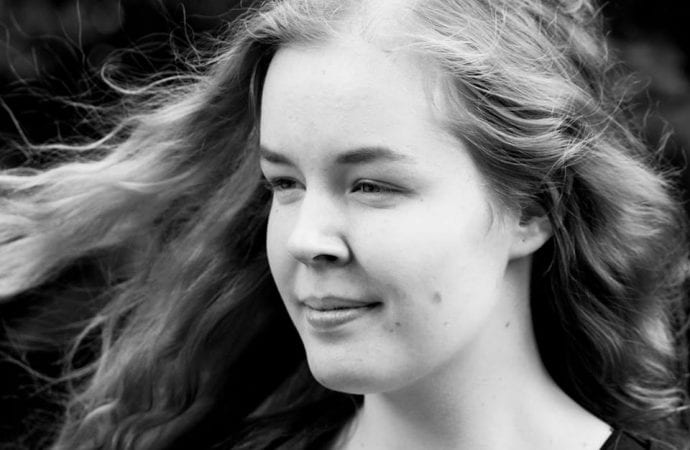After experiencing sexual assault and abuse as a child, a 17-year-old Dutch girl suffering from depression was allowed to let herself die of starvation and dehydration on Wednesday.
The Vatican condemned the death as “a great loss” and encouraged Europe to cater to the needs of its youth.
“Euthanasia and assisted suicide are a defeat for all,” Pope Francis tweeted on June 5, “We are called never to abandon those who are suffering, never giving up but caring and loving to restore hope.”
Noa Pothoven had been a victim of sexual assault at the age of 11 and 12. At 14, she was raped by two men in Arnhem, where she lived. Like many other victims of sexual abuse, Pothoven did not report the attacks and began a path that led toward depression, anorexia and anxiety.
According to local reports, the young girl first approached the clinic to enroll for euthanasia in 2018 but was turned away because she was too young.
According to Dutch media, she was allowed to starve herself to death without a medical intervention - according to the law, this is neither euthanasia nor assisted suicide. Euthanasia is a physician directly killing the patient, and assisted suicide is the doctor assisting a patient in killing themselves, usually by writing a prescription for a lethal drug.
“Everything is all right,” Pothoven wrote on her last Facebook post last week, “don’t try and convince me that this is not good, this is my choice and it’s definitive. Love is letting go.”
The young woman, who had been struggling with post-traumatic stress disorder, wrote about her experiences in a 2018 award-winning book, Winning or Learning. At the time, she said, her intention was that of helping vulnerable youth find appropriate counseling and support, which in her opinion was lacking in the country.
“We, parents of Noa Pothoven, are deeply saddened by the death of our daughter. Noa had chosen not to eat and drink anymore. We would like to emphasize that this was the cause of her death. She died in our presence last Sunday,” Pothoven’s parents said in a June 6 statement released in English on the Dutch daily The Gelderlander.
“We kindly ask everyone to respect our privacy so we as a family can mourn,” they added.
Dr. Mark S. Komrad serves on the Faculty of Psychiatry at Johns Hopkins, and is a leading opponent of psychiatric euthanasia.
In a statement, he said it was important to note that the death was caused by voluntary cessation of food and drink (VSED), and not euthanasia or assisted suicide.
“Of course, allowing that approach and not hospitalizing her for her condition, perhaps involuntarily, is highly questionable, and implies that she was felt to be competent or ‘untreatable.’ That conclusion would defy the understanding of most psychiatrists regarding this case, and may well demonstrate the current state of thinking about difficult psychiatric patients in a culture that has euthanasia as a treatment option for ‘untreatable’ and ‘unbearable’ psychiatric cases,” he explained.
“That itself is worth worrying about. But is another discussion,” the psychiatrist added.
The Pontifical Academy for Life, the Vatican’s pro-life think-tank, wrote in a tweet June 5. ““Noa’s death is a great loss for any civil society and for humanity. We must always reassert the positive reasons for life.”
Pothoven’s death is “a great defeat for the entire society, and especially for European society,” said Archbishop Vincenzo Paglia, President of the Pontifical Academy for Life, in an interview with local news agency ANSA on Wednesday.
“While it doesn’t make the news, the fact that the second cause of death for young people in Europe is suicide is dramatic. That’s why I ask for a gasp of responsibility by everyone, no one excluded,” he said.
“We have a radical question to ask ourselves. Are we building a Europe that excludes young people from its horizon? It’s not just a question of the law, it’s especially a question of finding once more the foundations of a society that must work to edify life and not allow for or help death’s dirty work,” Paglia added.
Although Pothoven’s death was a suicide, since medical personnel refused to intervene in her self-starvation, it has shined a light on Dutch euthanasia laws.
The Netherlands was the first country to legalize euthanasia in 2001, with a law that also allows minors who are at least 12 years old to apply. The doctor overseeing the minor must verify that there is “hopeless and unbearable suffering” and no “reasonable alternative.”
Until the age of 16, minors seeking to be euthanized in the Netherlands must have their parents’ permission and the parents must nonetheless be notified until the age of 18. In 2017, just over 4 percent (6,585 people) of the total deaths in the Netherlands were by euthanasia, according to official reports.
Not everyone in the country welcomed the legislation, with Christian groups especially resisting its implementation. When the law was approved, 5,000 people and many children marched silently in protest.
Laws allowing assisted suicide and euthanasia have been popping up all over Europe in recent years. After the Netherlands, Belgium legalized euthanasia in 2003 and extended the legislation to include minors in 2016. Euthanasia is also legal in Luxemburg. Assisted suicide is legal in Switzerland and Germany.
In Italy a law on assisted suicide is already underway.
The law would be open to “any adult capable of intention and desire” who suffers exclusively from a physical condition that “causes evident, unsustainable and irreversible suffering.”
For the first time, polls are showing a majority of the country supporting the change: 56 percent of Italians are favorable to a law legalizing assisted suicide and an additional 37 percent agree under special physical and health conditions, according to a 2018 study by the Italian research group SWG.
In the United States, laws allowing for assisted suicide have been passed in Washington, Oregon, Colorado, Hawaii, Vermont, Montana, New Jersey, California, and the District of Columbia.

